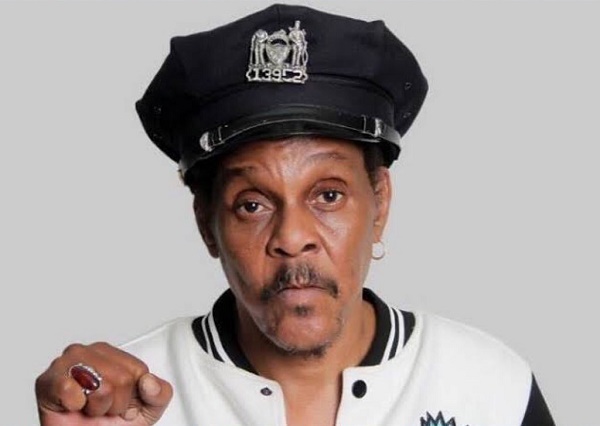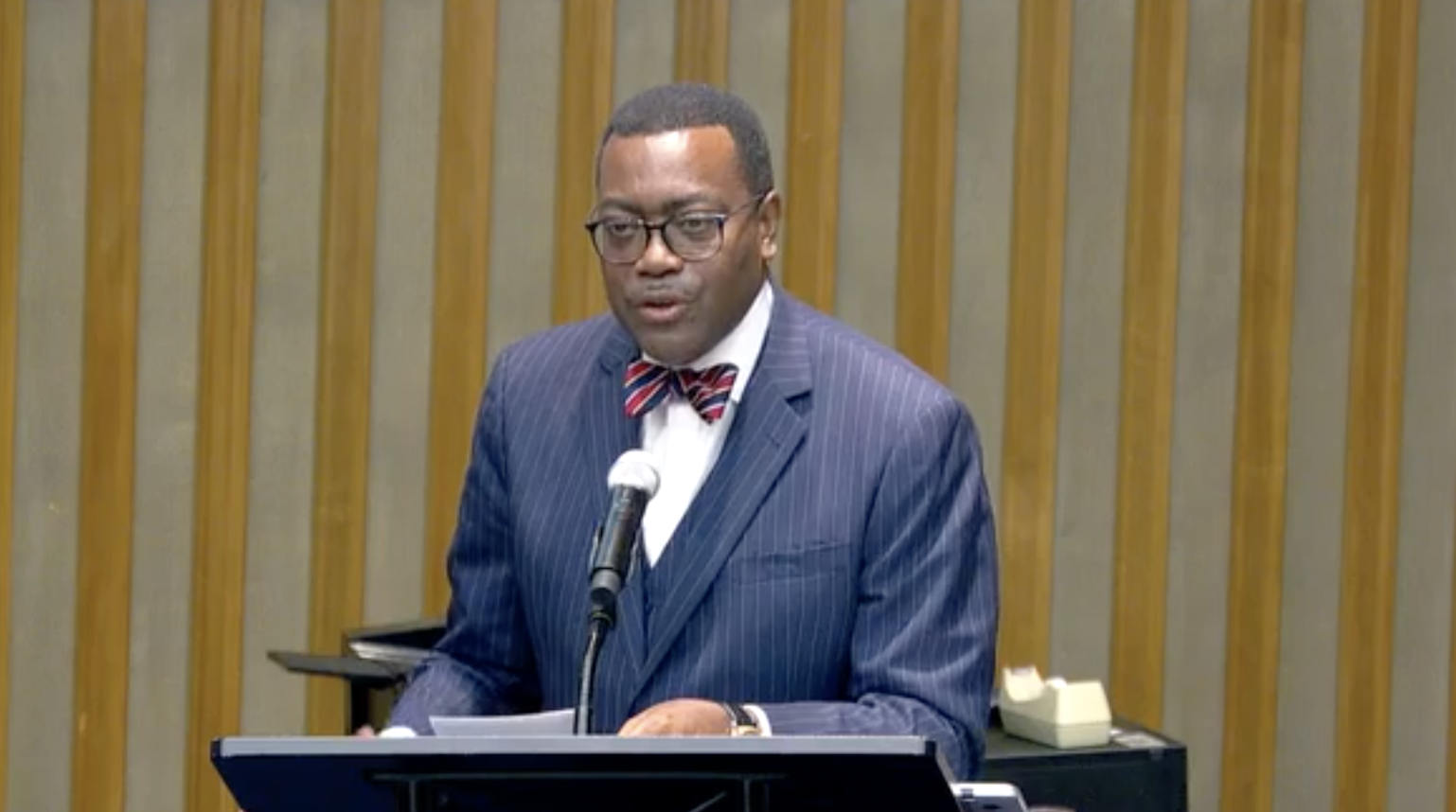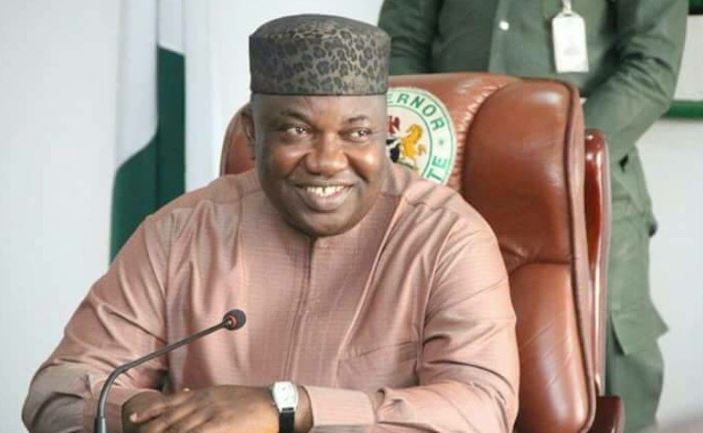'Heaven finally got its weatherman' -- tributes pour in for Majek Fashek
The death of Nigerian singer-songwriter, guitarist and reggae music lord, Majek Fashek, in New York, America, last week threw Nigerians into a nostalgic mood. It brought into memory the exact picture of a musical icon who the country lost to the icy pincers of death. Reports of his passage sauced his strides on the dancehall with near-magical exploits while he reigned. As he scintillated the audience with his hugely celebrated multiple award-winning single, Send down the rain, either coincidentally or through an inexplicable magical realism, raindrops suddenly began to well down from the face of the firmament.
Thrown into sudden limelight by his 1988 album entitled Prisoner of Conscience, a string of awards came the way of the man now dubbed The Rainmaker. He was exceedingly talented and blessed with a vocal resemblance of another reggae great, Jamaican Robert Nesta Marley, also known as Bob Marley. Majek released some highly rated songs which got his African audience nostalgic of the passage of Marley all over again, and concluding that he could effectively musically fill the void of the Caribbean musical idol’s untimely passage. Songs like the highly philosophical My Guitar where Majek evocatively glamourized the imperishability of this musical instrument, suggesting that it would still be alive, even when heaven and heart pass away, gave the musician a compositional rating of note. So also his re-rendition of Marley’s old spiritual song, Redemption Song, which captured the plights of African freedom fighters and the hope of a great future, in spite of how the contributions of these fighters had been flung aside by rewriters of African history. Fashek however carved out his own unique blend from the mimicry of reggae music that was beginning to come out of emerging Nigerian musicians of the time. Such crew of that time ranged from Terra Kota, Evi Edna Ogholi, Mandators and later, Ras Kimono. His own musical blend he proudly named Pangolo which was decidedly a fine brew of rock and reggae.
As Fashek’s renown began to spread like bushfire, so also was his rumoured pastime for drug consumption. Gradually, the handsome young man with huge promise of lighting Nigeria’s name on the global musical firmament got enmeshed in drug addiction which began to hugely affect his availability for musical shows and even ultimately, his talent. Between the time he came into limelight in 1988 and the time he passed on last week, Fashek’s active musical years were a mere conservative half of the 32 years that his name was hoisted on dancehall list of notables. In 2015, news of his bankruptcy filled the air which synchronized with that of his admission into a drug rehab centre in Abuja. During this period, the picture of Majek that hopped up in the media and that many encountered when they came across him was that of a man who needed immediate help. He looked haggard, forlorn and ostensibly seriously battling ill-health, alongside a dangerous pastime of drugs consumption.
Friends rallied round him and attended to his hospitalization need. In the midst of this, in September last year, rumours of his passage filled the stratosphere, which was immediately dispelled. Those who staved off the rumour however confirmed that he was critically ill and was in a London infirmary. By the time he passed on June 2, 2020 in New York City at 57, it was revealed that he battled, alongside his drug rehabilitation binge, esophageal cancer.
Advertisement
I went into this long musical biography of Majek Fashek to be able to establish that in his death, Nigeria had lost a musical gem to a consistent cancerous affliction among musical stars called drug addiction. Though there is an implosion of drug addiction among Nigerian youths, probably raised high by the consistent hopelessness that the youth can vividly see, rather than a bright horizon, drug consumption has, from time immemorial, being the bane of Nigerian music and musicians. It is an affliction that didn’t just start yesterday; it has dragged many notable Nigerian musicians down the sepulcher in their scores.
There has been this subsisting notion – notorious even outside the shores of Nigeria – that drug consumption contributes highly to artistic inspiration. While scientific studies locate a liaison between these two, no study has been able to strictly confine inspiration strictly to drug consumption. In other words, there have been artists who oscillated at the topmost height of their careers but who did so while maintaining wide social distancing from drugs. What this means is that, yes drugs can be enhancer of inspiration, other less-dangerous pastimes can evoke even higher inspirations as well. As successful artistes exist/existed who were tied to the apron strings of drugs, you could count artistes of even equal number who were permanently in dissonance with drugs.
In my book, Ayinla Omowura: Life and Times of an Apala Legend, I drew on a canvas the tragic Shakespearean life of Ayinla, an equally highly talented Yoruba musician whose life was cut short in his prime. While drug consumption, which he was notorious for, like Majek, couldn’t be strictly isolated as cause of his death, it was obvious that if Ayinla had escaped the violence that eventually took his life, another death lurked in the backyard for him in his unconscionable drugs addiction.
Advertisement
There is no gainsaying the fact that many of today’s musicians are enmeshed in a binge of drugs consumption. Fela Anikulapo-Kuti, Orlando Owoh and many other departed musicians, are some of the superlative artistes who were notorious consumers of drugs. Slightly over a year ago, the name of hip-hop singer, Davido was caught in a messy puddle of drug allegation when some of his friends were caught with the substance, a pastime that claimed the lives of some of them. For the Davido gang in the musical and showbiz world, it is almost an anathema not to be involved in the culture of drugs which I once dubbed the water bottle culture. This has proved to be the graveyard of many in this category.
As I penned this lamentable end of the glittering star, Majek, I remembered another musical star close to my heart which dimmed unceremoniously. It is the tragedy of the life of Brenda Fassie, a highly talented South African singer, so talented that the great Nelson Mandela was not only fascinated by her song and danced with her on the dancehall, the Madiba and million others, including this writer, were her fans. Born November 3, 1964 in Langa, Cape Town, Brenda, like Majek, was a wonder to watch. Her album, Memeza (Shout) which was released in 1997, is rated as the apogee of her musical success. It went platinum on the first day of its release. After Yvonne Chaka Chaka, arguably no musician from that country possessed her waltz and voice. She also made a huge contribution to Miriam Makeba’s famous hit, Sangoma, as well as Harry Belafonte’s anti-apartheid song, Paradise in Gazankulu. She was once voted 17th in the Top 100 Great South Africans. Unfortunately, Brenda was a suicidal drug addict and addictively wedged to lesbianism.
Brenda was not only talented, she possessed the tantrums of divas, so much that the Time magazine dubbed her the Madonna of the Townships. The world however began to notice hiccups in her life when her weird passion spilled into limelight in 1995. Brenda was found in a hotel room with the remains of her lesbian partner, who passed on during an orgy. She had died of apparent drug overdose. Brenda herself must have gone in and out of a rehab for about 30 times and on one occasion, sure she had overcome drugs, screamed, “I’m going to become the Pope next year. Nothing is impossible!” A few years after, Brenda reportedly collapsed in her brother’s arms, flung her last cocaine straw on the kitchen floor of her home in Buccleuch, fell into a coma and died on May 9, 2004, shortly after suffering from a brain damage. Post mortem report even claimed she was HIV-positive.
Today, hundreds of musicians and emerging stars, especially in Nigeria, are trapped in waltz of drugs. Their excuse is that it is a performance-enhancer. They however fail to come to terms with two facts: one, that you could perform resplendently without drugs and second, drugs could cut your life short at the cusp of stardom. This is the life of Majek Fashek; a star who lit his own candle in the wind.
Advertisement
Ondo Dep Gov and PDP
Preparatory to the October gubernatorial election, Ondo State is beginning to witness the usual familiar manifestations of politicians. A couple of weeks ago, the information highway was seized with the news of the plan by the incumbent Deputy Governor of the State, Agboola Ajayi, to defect from the All Progressives Congress (APC) to the People’s Democratic Party (PDP). He was alleged to have made so many subterranean moves to achieve this, throwing his alleged huge wealth into the exercise and making nocturnal visits to highly placed persons for the realization of this dream.
While it within the political liberty of the Deputy Governor to so do, the quality of morality of such exercise is deafeningly suspect. Governor Rotimi Akeredolu is said to have alleged the moral low in a fellow traveler inside same boat with him seeking to rock their collective boat, even when the crew is at sea. It would seem that the morality of this Caesar-like stab doesn’t faze the deputy governor at all. Though the PDP is alleged to be colourless and wouldn’t think twice about having a dalliance with Agboola in the October election, where does it leave its loyal members who had been travelling with the party even during inclement weathers at sea? Would it not confirm the feeling that both it and a man alleged to have spent the last four years stabbing his boss with unkind cuts are six and half a dozen?
Why are we this blest with our Senators?
Advertisement
Judging by the infelicity of their language usage and their inability to comprehend the geography of the roles carved out for them to play, elected public officials may have to be taken through refresher courses or even crash courses so as to properly tutor them on the requirements of their roles. About one-year old in the parliament and entrusted the role of spokesperson of the Nigerian Senate, Senator Surajudeen Ajibola Bashiru mirrored this crass need recently. Asked to react to a recent statement by famous retired soldier-activist, Abubakar Dangiwa, accusing President Muhammadu Buhari of lopsidedness in his appointments, Bashiru quickly headed for the gutters and returned with a heap of sewage which he festooned round his own “Distinguished” body and the National Assembly as a whole.
“Beer parlour discussion,” he announced magisterially, was the only way he could describe Dangiwa and Nigerians who took umbrage against the president for what has been labelled his administration’s abiding cronyism. Bashiru even added that Buhari had powers to appoint whoever he wanted into political offices and gave a constitutional shield to Buhari’s notorious nepotism by citing Section 14(3) of the Nigerian constitution. According to him, the constitution didn’t reckon with the strength of appointments made by the President but the number.
Advertisement
Bshiru’s mechanistic and vacuous argument has no response to how a president would appoint virtually all his security chiefs from the same ethnic stock; why he had to be the first Nigerian leader in history to sit atop a national tripodal power configuration which has a Northerner as President, Senate President and Chief Justice.
The ill-logics and intemperate colour of the Senator’s argument are so sickening and rankling that one cannot but wonder whether it was the combination of the delirium of office and intake of the opium of wanting to please the powers-that-be that made him not to know that being the Senate’s spokesman doesn’t approximate being the night soil man of the executive.
Advertisement
Rave of rape and reign of lawlessness
Though some people claim that it is given impetus by the hype of social media and the stampede to report such, we should all be bothered by now about the cancerous spread of rape cases in Nigeria. It has assumed such a frightening dimension, even epidemic proportion, that every right-thinking member of society should know that the female gender is faced with a huge threat by a colony of sexual locusts whose proboscis is sharpened to devour.
Advertisement
If you open the newspapers, scroll pages of social media threads or tune to broadcast stations, you will find out how deafening the shouts of cases of rapes are. In the last one week, for example, ranging from Uwaila Omozua, the 100-level student raped to death in a church in Benin, to Barakat Bello, raped to death in Ibadan, among others have trended embarrassingly.
Some people claim that there has actually been no implosion of rape figures but that the figures are given wider publicity as a result of the implosion of media outlets and the access to them by individuals. What they say in essence is that we have always been living with rapists as a people since even pre-colonial time. Being a chauvinistic society where the male gender could do no wrong, many of these animalistic cases were buried in shrouds of culture. Increasing awareness has however caught up with the decadence of the past and the animals among us are getting exposed to the chagrin of the rest of us. The idleness, indolence and hopelessness of a COVID-19 world have further brought out the beasts in us, which are funneled out through many media routes. Crimes and rape are the outlets through which these animal behaviors are expressed.
What can we do as a society to tame this beastly rape activities? Methinks the first thing to do is to acknowledge that we have a social emergency on our hands in these imploding rape cases. After this, we should make public examples of rapists. This is being well-handled in Ekiti States, among the states of Nigeria, where Governor Kayode Fayemi and his wife are pioneering a regime of shaming and naming methodologies through law, where these dammed lots among us are disgraced and socially castrated. The next step is to ensure that rape and rapists attract societal isolation and blacklist, such that perpetrators and their families get to swallow what looks like hemlock of the Socratic era. The next step is to strictly pursue jail terms for all rapists.
When there is a collective system of demonizing the beasts in human skins called rapists among us, we will be on our way to getting our freedom from their menace.
Does Alao-Akala have fetish incisions on his body?
I never liked former governor of Oyo State, Adebayo Alao-Akala who turned 70 years on June 3, 2020. I should rank atop the list of his nemeses while in and out of office. I never spared any opportunity to wield the cudgel against his governmental policies, personal lifestyle and disposition. His love for jewelries, for instance, I deplored as reflective of his romance with the vanities of life.
So when he invited me early this year to his house, I was afraid that he had a Satanic recompense for my ceaseless criticisms of him. He however handed the manuscript of his well-written autobiography to me and beseeched me to “use your knowledge” to critique it. Apart from its title which he penned as Amazing Grace, Alao-Akala gave me liberty over the manuscript. More to come: he asked me to write its Foreword. He didn’t bother to ask for what I wrote in it until the book was in prints. I was taken aback by his trusting disposition. First is that inside the manuscript were negative criticisms of people he knew I related with; why was he not afraid that I could spill its content? Second, was he not afraid that my level of disdain for him was so much that I could sabotage the book?
While reading the autobiography, I went on a journey with him through his youth, how he lost his father while barely off his diapers, how he was raised by his grandmother, Iya Alaro, how he suffered the looming probability that he might not advance educationally beyond primary school and other privations in life. These made me to begin to see the picture of a man who had lost all hope of becoming somebody in life and who grace lifted up by the lace of his shoes. This must have led to his highly talked about compassion as governor. On one of my visits to him to clarify some issues, I told him point blank that I didn’t agree with the list of his purported achievements in office affixed to the book. He asked me why. As plenty as his road infrastructure efforts were in Oyo during his governorship, the quality of the works left much to be desired, I said. This, I psychologically analysed, was due to his lax scrutiny of the works, borne out of his blinding desire to benefit people, at the expense of excellence. We had a heated argument over this.
I also put it to him that the impression people had of him was a highly fetish man. Not replying, Alao-Akala merely removed his shirt and swiveled round, asking me to identify any incision spot on his body. I couldn’t find any. Someone once told me he drank from a bottle where a live snake was kept. I asked him and he acknowledged the truth of the allegation but told me it was a herbal concoction procured from China which worked for bodily ailments. What about his visits to Sat Guru Maharaj Ji’s shrine in Ibadan, which were alleged to be flirtations after spiritual power? The self-touted Living Master, said Alao-Akala, was his friend who he once arrested while a police officer in Lagos and he visited him more out of the need to identify with a friend than that of a spiritual need.
The about five or six times I have met Alao-Akala ever since showed me a highly humane man and not the picture of a sadistic and violent public official I once got. He has a deep and vast sense of history and struck me as a historian with deep knowledge of the contours of the past. His power of recall, even at age 70, is second to none. He may not be your idea of an ideologue, a dazzling talker like Charlie Chaplain or a political orator in the mold of S.L. Akintola while in office but you cannot fault his genial heart, a trait absent in many Nigerian leaders. Did I fall in love with Alao-Akala’s persona? Yes. Did I come out of the visits to him with the impression that I was wrong hitherto? No. If opportunity presents itself, I wouldn’t hesitate to criticize the erstwhile policeman again but I would do this with a greater understanding of where he was coming from, after being let into the window of his past.
This is wishing Otunba Adebayo Alao-Akala a happy 70th birthday.
Views expressed by contributors are strictly personal and not of TheCable.







